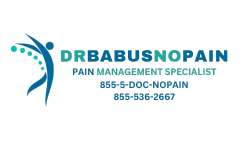Overview of Postherpetic Neuralgia
Postherpetic neuralgia (PHN) is a chronic pain condition that occurs as a complication of shingles, a viral infection caused by the varicella-zoster virus. PHN is characterized by persistent, burning, or shooting pain in the area where the shingles rash was present. The pain can be intense and debilitating, lasting for months or even years after the rash has healed. PHN is thought to occur due to nerve damage or inflammation caused by the varicella-zoster virus. Risk factors for developing PHN include older age, severe initial pain during shingles infection, and involvement of the face or trunk. Treatment for PHN focuses on managing pain and improving quality of life. Medications such as antidepressants, anticonvulsants, opioids, and topical agents may be prescribed. Other treatment options include nerve blocks, physical therapy, and alternative therapies like acupuncture. Early intervention and a comprehensive treatment approach can help alleviate symptoms and improve the well-being of individuals with PHN.
Symptoms of Postherpetic Neuralgia
Postherpetic neuralgia (PHN) is characterized by persistent, burning, or shooting pain in the area where a shingles rash previously occurred. The pain can be intense and last for months or even years after the rash has healed. Other symptoms include hypersensitivity to touch, numbness, tingling, or itching in the affected area. PHN can cause significant discomfort and can impact daily activities and quality of life. It is important to seek medical attention for proper diagnosis and to develop an individualized treatment plan to manage and alleviate these symptoms effectively.
Causes of Postherpetic Neuralgia
Postherpetic neuralgia (PHN) is primarily caused by the varicella-zoster virus, the same virus that causes chickenpox and shingles. After a person recovers from shingles, the virus can remain dormant in nerve fibers. In some cases, the virus can reactivate, leading to an inflammatory response that damages the nerves. The exact reason why some individuals develop PHN while others do not is not fully understood. However, factors such as older age, severe initial pain during the shingles infection, and involvement of the face or trunk are considered risk factors for developing PHN. Prompt treatment of shingles and early pain management may help reduce the likelihood of developing PHN.
Treatment Options for Postherpetic Neuralgia
Treatment options for postherpetic neuralgia (PHN) focus on managing pain and improving quality of life. Medications are often prescribed, including antidepressants, anticonvulsants, and opioids, which can help reduce nerve pain and improve symptoms. Topical agents such as lidocaine patches or capsaicin cream may also provide relief by numbing the affected area or desensitizing the nerves. Nerve blocks involving the injection of a local anesthetic or corticosteroid directly into the affected nerves can provide temporary pain relief. Physical therapy may help improve muscle strength and flexibility, reduce inflammation, and alleviate pain through exercises and techniques such as heat therapy or transcutaneous electrical nerve stimulation (TENS). Complementary therapies like acupuncture or relaxation techniques may also be considered. It is important to work with a healthcare professional to develop an individualized treatment plan based on the severity of symptoms and the patient's overall health.
